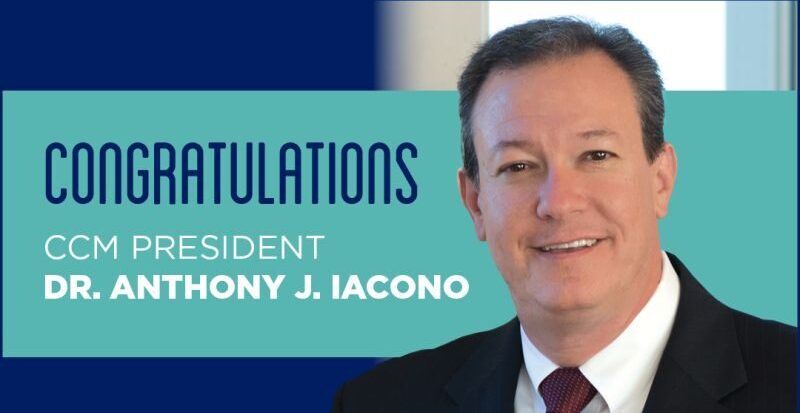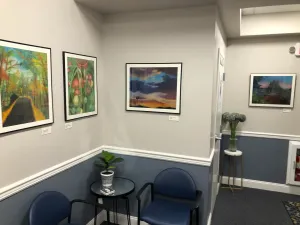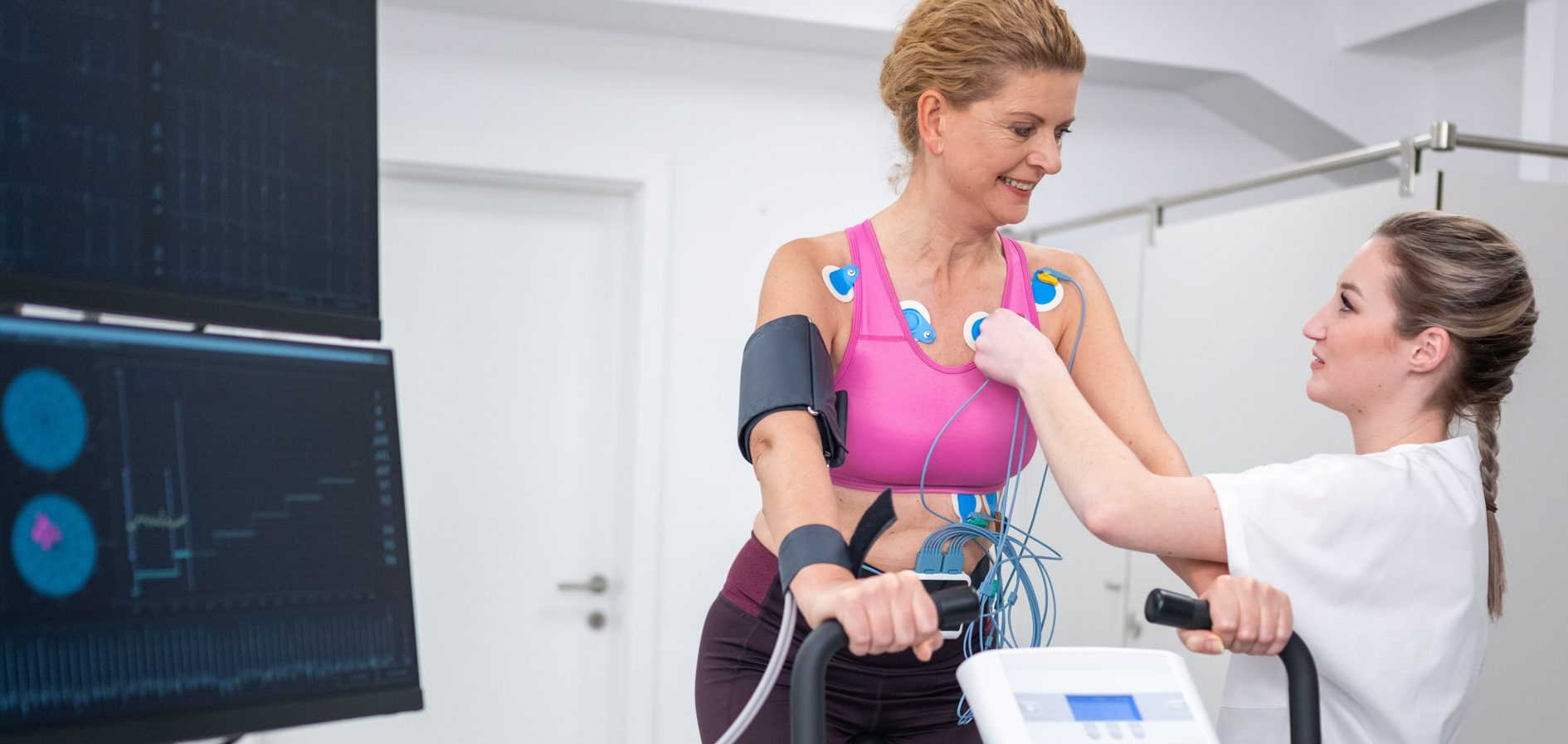What You Will Learn
Respiratory therapy is a growing health care field providing a rewarding professional work environment, competitive salaries, opportunities for continued learning while helping mankind. Learn how to:
- Assist physicians in diagnosing breathing disorders
- Assess patients to recommend changes in the therapeutic approach to care
- Provide patient and family education in smoking cessation, asthma education and pulmonary rehabilitation
- Draw and analyze arterial blood
- Manage artificial airways and life support devices such as mechanical ventilators
How to Enroll
There are two phases: the Pre-professional Phase consists of general education foundation courses taken during the day or evening on a part-time or full-time basis.
The Professional Phase* begins each fall semester and is typically completed in three semesters (fall, spring, summer). A separate application is required to be considered for admission.
*Admission into the professional phase is competitive and based on application, grades received in the pre-requisite’s, ranking and college GPA.
Curriculum
The 47-credit respiratory core includes:
- an introduction to chemistry, microbiology and physics;
- a series of cardiopulmonary courses along with others in respiratory therapeutics and mechnical ventilation; and
- five courses of clinical practice
You must also complete a 20-credit general education foundation including courses in English composition, college algebra, genera psychology and two anatomy and physiology courses.
Careers in the Field
The world has a high demand for you! An Associate of Applied Science degree in Respiratory Therapy provides a solid foundation to earn a Registered Respiratory Therapy (RRT) credential and directly enter the workforce. Employment of respiratory therapists is projected to grow 13 percent from 2022 to 2032, much faster than the average for all occupations.
About 8,600 openings are projected each year, on average, over the next decade in a variety of settings including:
- Air Transport
- Emergency Rooms
- Home Care
- Hospitals
- Intensive Care Units
- Newborn and Pediatric Intensive Care Units
- Operating Rooms
- Physician Offices
- Pulmonary Rehabilitation
- Sleep Laboratories
- Smoking Cessation
The median wage for respiratory therapists is $70,540 per year or $33.91 per hour as of May 2022.*
As an RRT you can earn further your education to earn certifications in specialized areas or a bachelor’s or master’s degree at a neighboring institution.
- Higher degrees may lead to employment in management, administration, teaching and research.
- Some RRTs establish their own respiratory home care companies which provide equipment and clinical services.
- Others have started business in services such as patient care education and respiratory diagnostic services.
* Bureau of Labor Statistics, bls.gov, 2023
Why Study Respiratory Therapy at CCM
The Respiratory Therapy Program at CCM stands out because of its family environment, caring faculty and emphasis on professionalism.
Technologically Advanced Education
- The Respiratory Therapy Laboratory at CCM is state-of-the-art equipped with ventilators, intubation devices, spirometers, and arterial blood gas monitors.
- Realistic clinical simulation is done using high fidelity mannequins that are linked to computer software, allowing students to be well-prepared for the workplace.
- New Paragano Family Foundation Healthcare Simulation Center, a 13,000-square-foot state-of-the-art facility on campus, opened in 2023 providing real-world, hands-on training for students. High-fidelity simulators, patient monitors, ventilators and IV pumps are used, along with a full camera system to record students as they train and to share with others remotely.
Coming Soon! CCM has announced plans for construction of the new 70,000 square-foot Center for Health Professions.
Supportive Community Partnerships
Health care facilities such as Atlantic Health Systems, Robert Wood Johnson and Wanaque Center support clinical learning in various settings including emergency and critical care and long-term care.
Expert Faculty
Skilled full-time and adjunct faculty have diverse educational and professional backgrounds, plus the faculty to student ratio at CCM is very low providing personalized attention.
Vibrant Campus Life
Our campus is vibrant and buzzing with student life! The Respiratory Therapy Club offers learning and networking possibilities including celebrating Respiratory Care Week.
Accreditation
Fully accredited by the Commission on Accreditation for Respiratory Care (CoARC). Graduates are eligible to apply for licensure as a Respiratory Care Practitioner in New Jersey.
Paying for Your Respiratory Therapy Education
There’s good news: Money is available to help you pay for school! Our Financial Aid staff can provide lots of information about the process of finding funds to help pay for your CCM education.
Featured Courses
Respiratory Therapeutics
An introduction to respiratory care, including history of the profession, ethical and legal responsibilities of the respiratory therapist; medical terminology, basic respiratory care procedures including the physics, physiology and administration of medical gas therapy, basic patient communication and assessment skills. Basic respiratory care procedures, humidity and aerosol therapy, hyperinflation therapy, chest physiotherapy and bronchial hygiene; an overview of microbiology as applied to respiratory care; infection control; and equipment sterilization procedures.
Radiation Biology and Physics
The study of physics and electronics involved in the production, use and control of the various electromagnetic energies used in medical and diagnostic applications.
Pathology for Radiography
This pathology course is an assessment of medical and surgical diseases designed to familiarize the student with changes caused by disease in relationship to radiography. Student projects, associated film presentations and critiques are also included.
Your Respiratory Therapy Faculty Advisor
Gracielle Fong Director Respiratiory Therapy Program
Email: gfong@ccm.edu
Office: Emeriti Hall, EH 128
Office hours: Tuesday 09:30-11:00, Wednesday 09:30-11:00
Phone: 973-328-5423
Specialization: Respiratory Therapy
Department: Respiratory Therapy



